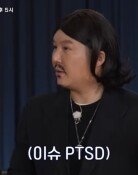[Editorial] Prosecutors Should Not Revive Old Practices
[Editorial] Prosecutors Should Not Revive Old Practices
Posted November. 01, 2008 03:02,
At a ceremony to celebrate its 60th anniversary yesterday, the Supreme Prosecutors Office announced a future development strategy that includes allowing prosecutors to take witnesses into custody and charge with obstruction of justice those who give false evidence. Prosecutors say they need to reinforce the investigation system to eradicate corruption and better protect society from crimes. Such measures, however, emphasize the convenience of the investigation and could invite intense debate over human rights.
A long time ago, prosecutors used to force suspects to confess. If the two measures are introduced, they could neglect their duty to pursue scientific investigation and evidence. Given that, the future development strategy is rather an obsolete strategy.
Prosecutors say false statements constitute obstruction of justice. Making a false statement to prosecutors is different from bearing false witness in court or obstructing justice, however. Also, obstruction of justice goes against trial-priority principles that put oral statements to the court ahead of written statements. Worse, it runs counter to the constitutional article that says a suspect is considered innocent until proven guilty.
The practice in which witnesses are forcefully taken into custody is a human rights violation since witnesses who are not directly related to crimes are treated like suspects. The decision whether to support an investigation should be made by citizens themselves. Prosecutors have no right to force a person to help a probe.
It is also doubtful if statements made by witnesses taken into custody and suspects threatened with the charge of obstruction of justice will be recognized as evidence by a court. It is no different from forcing witnesses not directly related to crimes to help the investigation and make a statement, and threatening them with punishment. The practice is also highly likely to violate the rights to personal liberty and silence.
Undeniably, prosecutors have faced bigger challenges since the introduction of trial-priority principles. Judges have increasingly rejected more arrest warrant applications. It is understandable that prosecutors favor previous investigation practices, but they must remember that human rights are more important than investigation convenience for prosecutors.







